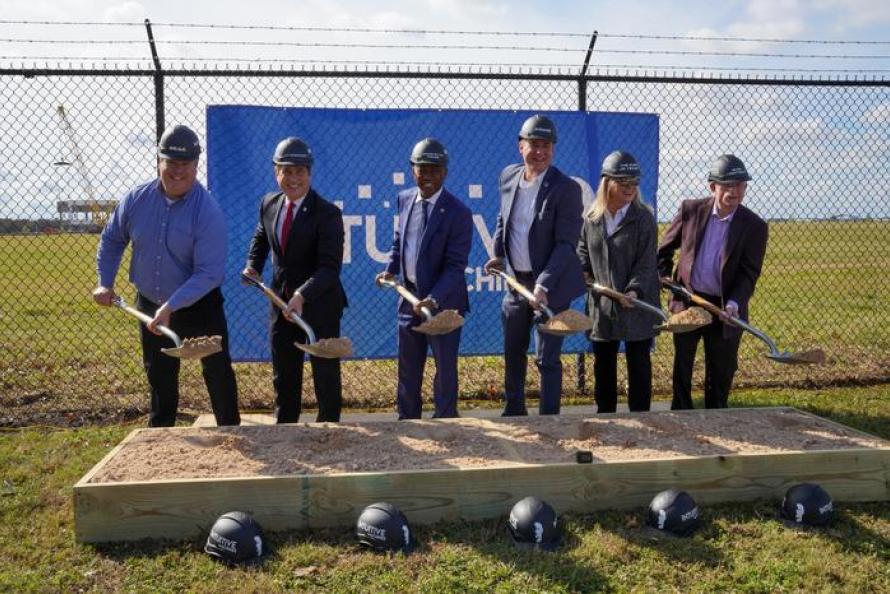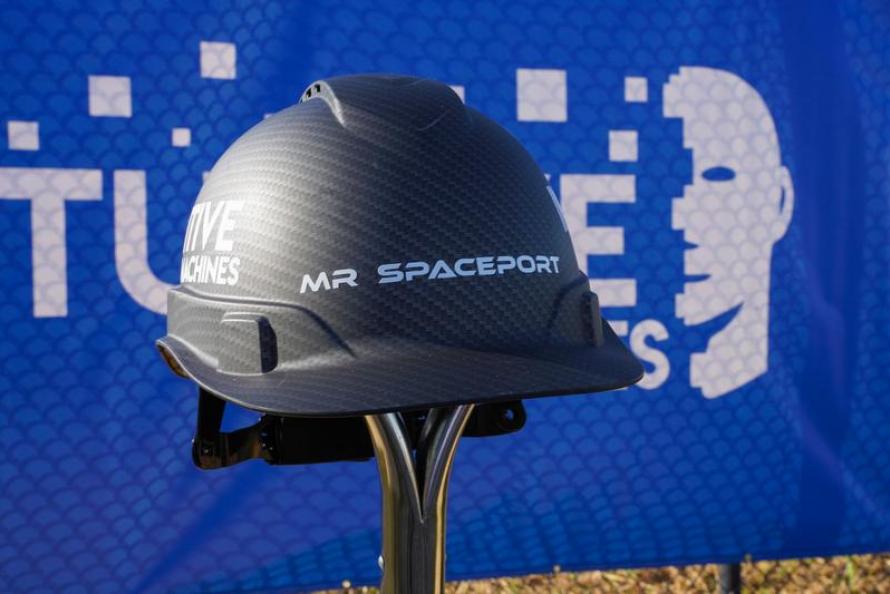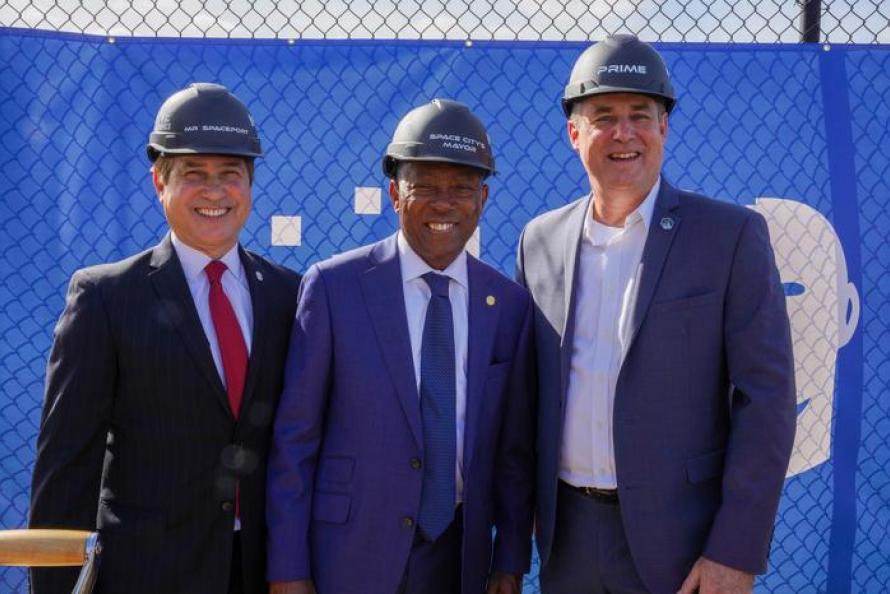The three anchor tenants at Houston Spaceport – Intuitive Machines, Collins Aerospace, and Axiom Space – continue to make groundbreaking advances at the nation’s 10th licensed spaceport.
Arturo Machuca, General Manager at Houston Spaceport and Ellington Airport commented on the recent developments and marveled at the exponential growth and development at the spaceport.
“I want to applaud the visionary leadership of Houston Airports Director Mario Diaz, as well as the forward-thinking of the Houston City Council who have granted the necessary approvals to create the strong infrastructure at Houston Spaceport,” Machuca said.
Vital infrastructure improvements to 90 acres were made to attract tenants and future development, including the creation of streets and the addition of water, wastewater and electrical power distribution facilities as well as communications facilities.”
“This is only the beginning,” Machuca said, “but the potential of what we started is being realized – and it’s spectacular.”
Intuitive Machines
On Dec. 2, Spaceport anchor tenant Intuitive Machines broke ground for its new $40 million lunar production and operations center, a facility which will span across an estimated 12.5 acres and have more than 125,000 square feet of office and advanced production space. Other features will include tiered storage, an advanced loading dock, and an expansive production area capable of handling all Nova Lunar Lander designs.
The groundbreaking ceremony featured Houston Mayor Sylvester Turner and Intuitive Machines President and CEO Steve Altemus alongside Machuca.
Intuitive Machines is set to become the first-ever private company to travel to the moon – further solidifying Houston – Space City – as a major player in an aerospace industry which is growing by leaps and bounds.
“This groundbreaking ceremony further propels Houston as the leader in the space race to the moon and beyond,” Houston Mayor Sylvester Turner said at the event. “Our great city is known for taking on humankind’s boldest challenges, and Houston’s own Intuitive Machines will be the first private company in the history of humankind to put a lunar lander on the moon.”
The moon landing in the first quarter of 2022 will be the United States’ first return to the moon in nearly half a century, Turner said.
The new center is expected to be completed by the end of next year.
The company also plans to grow its workforce from about 150 to 250 in the center, according to Jack Fischer, the company’s vice president of strategic programs.
Intuitive Machines has several contracts with NASA contracts and plans to send its Nova-C lander to the Moon on a SpaceX Falcon 9 rocket from Cape Canaveral in the first quarter of 2022. Additional missions are scheduled to follow in late 2022 and in the first quarter of 2024.
Collins Aerospace
In June, Collins Aerospace announced plans for a new eight-acre, 120,000-square-foot aerospace manufacturing campus at Houston Spaceport that will support spaceflight and host Houston’s first spaceflight incubator. Construction has begun and is proceeding in robust fashion, according to Machuca.
The facility will also host Houston’s first-ever incubator supporting spaceflight, with a dedicated 10,000-square-foot area for startups and universities to collaborate on solving critical space technology challenges, including robotics, medicine, and additive manufacturing.
Axiom Space
Axiom Space is moving forward on plans to develop its commercial space station at the Houston Spaceport. Axiom Space plans to develop a 14-acre headquarters campus to train private astronauts and for production of its Axiom Station. The commercial space station is expected to cost $2 billion, which Axiom is funding through private investment and revenue from providing full-service human spaceflight missions as well as its research customers and brand partnerships.
Axiom expects to have a functional headquarters campus in 2023. Eventually, it could add more than 1,000 jobs for the Houston area.
In January 2020. NASA selected Axiom to develop a commercial module that will attach to the International Space Station. This first module is set to launch in 2024 and will be followed by other modules to provide areas for housing, manufacturing and research.
Future of the Spaceport
The mission of the Houston Spaceport is to create a focal point for aerospace innovation with a collection of aerospace companies that will lead the U.S. in a transition from a government-driven to a commercially driven space program.
The partnerships with these anchor tenants are key to realizing the near-endless possibilities for the Houston Spaceport. Machuca said.
“The Houston Spaceport is going to be a center for collaboration and innovation far into the future,” he said. “Some of the brightest minds and most innovative minds in the world will be able to create and carry us even deeper into outer space exploration,” Machuca said.


